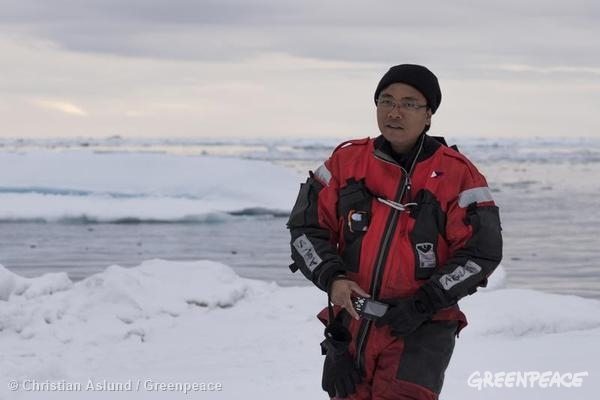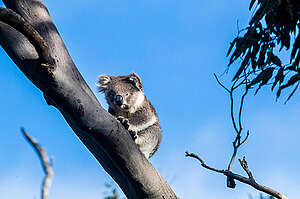Blogpost by Yeb Saño
As I witness with my own eyes the sublime and spectacular beauty of the Arctic, I realize that we live on a deeply interconnected planet. What happens all over the world affects this region in seriously profound and intricate ways. And what happens here in the Arctic affects the entire world.
My sojourn to the Arctic, highlighted by our forays to the edge of the sea ice pack and the magnificent glaciers around Svalbard, has been a powerful experience. I experienced first-hand the splendour and radiance of nature on the top of the world. Standing on ice floes in the Arctic Ocean and walking beside a melting glacier proved to be breathtaking. The experience reminds me of our minuteness, as well as of my own humble mortality. It is fascinating to realize how small we can be especially when exposed to the harsh elements of thisa frigid region. But what is disconcerting about the encounter is that it underscores that we live on a very fragile planet, and the Arctic, despite its magnificence, is a very fragile place.
What we see here in the Arctic right now is something that is in grave danger of being lost forever. Already, the past seven years have seen the lowest minimum sea ice coverage ever recorded and this year is poised to join the list. The repercussions are serious, and further decline of the Arctic sea ice can spiral towards fatal consequences. It is clear that the human footprint has profoundly altered the planet in ways that we never imagined. The trend is blatantly clear; the Arctic ice is disappearing before our eyes, and our generation might be the last one to see the Arctic frozen, as it should be.
As I stand on the top of the world, I feel an overwhelming sense of foreboding. As the Arctic melts, the consequences to the whole world will be catastrophic. Coming from a country ravaged by increasingly intense typhoons, going to the Arctic is like connecting the dots – the very clear and bold dots – of climate change.
What is even more vexatious about the plight of the planet is that the very cause of climate change and the melting of the Arctic – fossil fuels – is enticing a mad rush for more exploration as more of the Arctic Ocean is exposed to easier resource exploitation and shipments of coal that would ply the northern route. This is a madness of fatal proportions.
We can stop the madness. Saving the Arctic will require tremendous effort and the challenge will be difficult. It will mean world leaders must keep their eyes on the ice. It will require a massive planetary awakening from a deep slumber. It means looking away from fossil fuels and it will demand a rapid transition to a clear energy future and vigorously pursuing the goal of 100% renewables by 2050.
Saving the Arctic means saving the planet. Saving the Arctic means preventing catastrophic impacts the world over. As my country is worth fighting for in the face of devastating storms, the Arctic is worth fighting for in the face of reckless greed.
Yeb Saño is the Climate Change Commissioner of The Philippines, from MV Esperanza in the Arctic Ocean.


